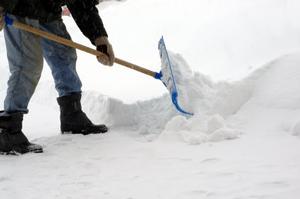 ALTON, IL – The first day of winter officially arrives Dec. 21, but one check of the thermometer this week confirms that winter is already here. The bitter cold and chance of snow leaves area residents vulnerable to a wide variety of health and safety problems.
ALTON, IL – The first day of winter officially arrives Dec. 21, but one check of the thermometer this week confirms that winter is already here. The bitter cold and chance of snow leaves area residents vulnerable to a wide variety of health and safety problems.
“The best thing I can tell people is to dress in layers when it’s cold and to avoid excessive alcohol,” said Dr. David Burnside, chief medical officer at Alton Memorial Hospital and medical director of the hospital’s Emergency Department. “The young and old have trouble compensating for cold, and many drugs can impair warming as well. Keep well hydrated with warm drinks, and exercise really does heat you up. Exposure to cold temperatures can cause serious or life-threatening health problems.”
Get The Latest News!
Don't miss our top stories and need-to-know news everyday in your inbox.
Here are some other tips to withstand the cold weather:
• Dress warmly in several layers of loose-fitting clothing and stay dry. Wool, silk, or polypropylene inner layers of clothing will hold more body heat than cotton.
• To prevent carbon monoxide poisoning, have your heating system and any other gas, oil or coal-burning appliances serviced by a qualified technician every year.
Never use a generator, charcoal grill, camp stove or other gasoline- or charcoal-burning device inside your home, basement or garage. Nausea, headache, confusion, unusual fatigue can be signs of carbon monoxide poisoning.
• Install a battery-operated carbon monoxide detector and a smoke detector in your home. Test them monthly, and replace batteries twice yearly.
• If you are over age 65, place an easy-to-read thermometer in an indoor location, and check the temperature often during the winter months. Your ability to feel a change in temperature decreases with age, and older adults are more susceptible to health problems caused by cold.
Frequent hand washing is one of the best ways to prevent the spread of germs.
“You should be washing your hands almost anytime you put your hand to your mouth or after you’ve shaken hands with other people,” Dr. Burnside says. “And it’s the combination of the soap, warm water and scrubbing action that helps dislodge and remove germs. Most people don’t wash their hands well enough.”
• Wash your hands frequently for 20 seconds (about the length of the “Happy
Birthday” song twice).
• Rub hands together to make lather and scrub all surfaces.
• Dry your hands using a paper towel or air dryer. If possible, use your paper towel to turn off the faucet.
• If soap and water are not available, use alcohol-based gel to clean hands.
To lessen your risk of falls when walking outside, it’s important to:
• Not wear high heels or leather-soled shoes on the ice and snow. Socks worn over shoes will do in a pinch.
• Take snow boots or tennis shoes with you to work to change into before going outside.
• Use handrails whenever possible.
• Walk on cleared paths.
• Shuffle your feet when you walk; do not take big steps.
• Sprinkle ice melt on slippery surfaces you encounter.
Traveling is an important part of the upcoming Christmas season for many people, and that poses various hazards. Taking a few extra minutes to prepare for your trip is better than not getting there at all.
• Don’t drink and drive, and don’t let someone else drink and drive. According to the Centers for Disease Control, alcohol-related motor vehicle crashes kill someone every 31 minutes and non-fatally injure someone every two minutes.
• Wear a seat belt every time you drive or ride in a motor vehicle.
• Always buckle your child in the car using a child safety seat, booster seat, or seat belt (according to the child’s height, weight, and age). Children should start using a booster seat when they outgrow their child safety seats (usually when they weigh about 40 pounds). They should continue to ride in a booster seat until the lap/shoulder belts in the car fit properly, typically when they are 4’9” tall.
“Keep all kinds of emergency supplies in your car,” Dr. Burnside said, referring to things such as shovels, sand, first aid kits, windshield scrapers, matches, flashlights and jumper cables. “You need to be able to stay warm until help arrives.”
More like this:
